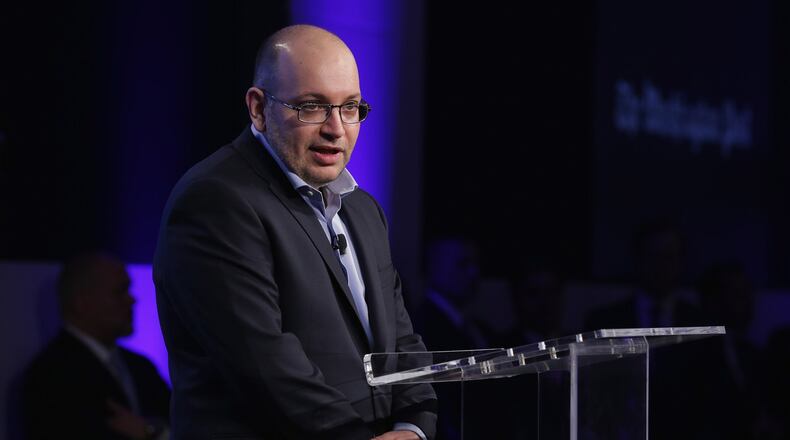His book, originally released in hardcover in January 2019, was released in paperback this January, and his appearance Tuesday is the result of efforts by his mother, Mary Rezaian, now an Oxford resident.
Jason Rezaian holds dual citizenship since his late father was an Iranian citizen who came to this country as a foreign student. His mother, who grew up near Chicago, went to college in California and met her husband there.
They operated a business together, but after his death in 2011, she decided to travel and moved to Tehran, where her son was living. She later moved to Turkey, where she lived for four years, including the 18 months of his imprisonment.
He was released Jan. 17, 2016, the day after the signing of the nuclear arms deal, as one of three prisoners released in an exchange for Iranians held here.
Mary Rezaian was with her son on the flight from Iran to Switzerland on his release and then to the U.S. She was still a resident of Turkey but decided to move back to the United States.
“Once he was out, he urged me to move back to the States. I thought long and hard and chose Oxford,” she said.
That choice went back to 2012 when she signed onto a small tour group of American tourists visiting Tehran.
“I heard about the tour and it was one of the places I wanted to see. I met two women from southwestern Ohio and we became fast friends. … We kept in touch and they kept inviting me to Oxford and eventually, I came to see for myself. I was charmed.”
She had hoped to bring her son here for an author’s visit when he was on a book tour last year for the hardcover release of “Prisoner” but it did not work out. Now, he will be here Tuesday as part of his tour for the paperback version. Before the evening event at the Lane Library, he will be speaking to at least one Miami University class in the afternoon.
Jason Rezaian was arrested with his wife, also Iranian, who was held 72 days in solitary confinement and released to her family. She had also been a foreign correspondent but now works for the Committee to Protect Journalists. She and his mother traveled around the country attempting to speak to officials without much success, finding some sympathy from staff members but others calling him a spy.
Mary Rezaian began her ordeal by trying every possible means of communicating with people in Iran and, several months later, going there herself. She was allowed to see him twice in December 2014 but was then told she could not see him until his trial. That was supposed to be a one-day trial but it ended up being four days scattered over four months. During that summer and fall, she was allowed to visit him once a week at the prison.
“There was no resolution. The Iranian press made wild accusations but they never produced evidence that would have stood up,” she said. “In reality, he and the others were being held to trade for Iranians who overstepped the boundaries in this country.”
About the Author
